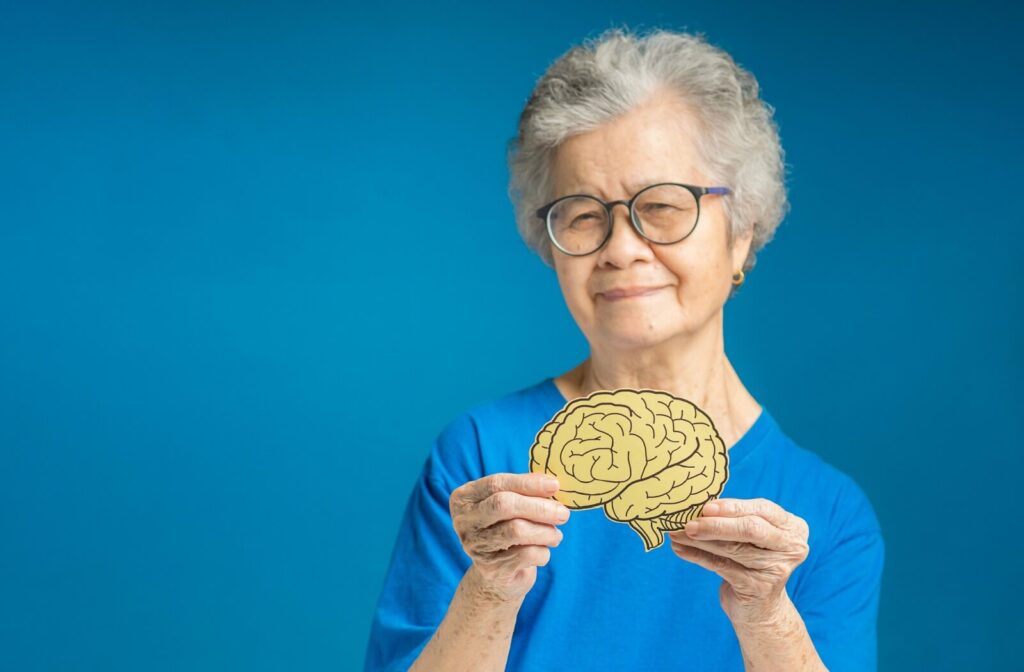Caring for a loved one with dementia is both challenging and deeply personal. Each person experiences dementia differently, so it’s crucial to tailor care to their individual needs. At All American Senior Living at Tinton Falls, we offer comprehensive memory care services and assisted living options designed to support seniors with dementia, making sure their unique needs are met with compassion and understanding.
Why a Personalized Care Plan Is Essential
A personalized care plan is vital for seniors with dementia because it takes into account their specific medical, emotional, and physical needs. Creating a personalized care plan for seniors with dementia confirms that their care is tailored to their current abilities while considering future changes. This plan allows for consistent support that adapts to the progression of dementia and focuses on enhancing the senior’s quality of life.

Assessing the Senior’s Needs
The first step in creating a care plan is to thoroughly assess the senior’s current health and cognitive abilities. This includes understanding their stage of dementia, medical conditions, and daily living capabilities. During the assessment, it’s important to evaluate:
- Physical health, including mobility, strength, and chronic health conditions.
- Cognitive function, such as memory, decision-making skills, and awareness.
- Emotional well-being and potential triggers for anxiety, depression, or frustration.
- Daily living skills, such as dressing, bathing, and eating.
This assessment provides the foundation for developing a care plan that addresses the senior’s specific needs.
Incorporating Family Input
Family members play a critical role in personalizing care. They know the senior’s personality, preferences, and history better than anyone else. Involving family in the care planning process helps see to it that the senior’s routines and preferences are honored. Family input can also help identify potential triggers for agitation or stress, which is key to creating a supportive environment.
Some families prefer to participate in caregiving themselves, while others may seek professional support. Either way, open communication between family members and caregivers is essential for creating a well-rounded care plan.
Setting Realistic Goals
Personalized care plans should include realistic goals based on the senior’s current condition. These goals will vary depending on the stage of dementia. For example, during the early stages of dementia, goals may focus on maintaining independence and keeping the senior engaged in their favorite activities. In later stages, goals may shift toward comfort care and managing daily tasks with greater support.
Setting achievable goals helps caregivers measure progress and adapt the care plan as the senior’s condition changes. This approach also provides structure to the care process, confirming the senior receives appropriate levels of support as their needs evolve.
Creating a Structured Daily Routine
A structured routine is incredibly beneficial for seniors with dementia. Routines provide a sense of stability, reduce confusion, and minimize anxiety. Care plans should incorporate daily schedules that balance activity, rest, and social interaction. Consistency in mealtimes, exercise, and leisure activities helps seniors feel more secure.
- Morning: Gentle exercises like stretching or a walk in the garden.
- Afternoon: Engaging in a mentally stimulating activity such as puzzles, music therapy, or art projects.
- Evening: Quiet time with a focus on relaxation, such as reading or listening to soft music.
A daily routine not only supports the senior’s physical and mental well-being but also allows caregivers to manage time effectively, making sure all needs are met without overwhelming the senior.
Addressing Behavioral Changes
Dementia can lead to behavioral changes, such as aggression, confusion, or wandering. It’s important to address these behaviors in the care plan, identifying potential triggers and implementing strategies to manage them. For example, if a senior tends to wander, the care plan could include extra safety precautions such as alarms or supervision during high-risk times.
For seniors who become agitated or frustrated, caregivers can employ calming techniques, such as speaking softly, using touch, or redirecting attention to a favorite activity. Understanding the root cause of these behaviors helps caregivers provide support while minimizing distress.
Supporting Physical Health
Dementia often comes with physical health challenges, including mobility issues and chronic conditions. A care plan should include regular physical activity, medication management, and assistance with daily tasks like bathing and dressing. It’s also essential to monitor the senior’s diet and hydration to confirm they’re receiving proper nutrition.
Depending on the senior’s abilities, caregivers can adapt physical activities to meet their needs, such as incorporating seated exercises, walking, or gentle stretching. Maintaining physical health can improve mood, increase energy, and reduce the risk of falls or injuries.
Fostering Social Connections
Maintaining social connections is critical for seniors with dementia. Isolation can lead to depression and anxiety, so care plans should prioritize social interaction. This might include scheduled visits from family, participation in group activities, or outings with other residents. Social activities help stimulate the brain and promote emotional well-being.
For some seniors, smaller, more intimate gatherings may be less overwhelming than larger events. Incorporating personal preferences into social plans helps see to that the senior enjoys meaningful interactions without feeling stressed.
Ongoing Evaluation & Adaptation
Dementia is a progressive condition, and a care plan must evolve over time. Regular evaluations allow caregivers to adjust the plan as the senior’s needs change. This might involve increasing the level of care, modifying activities to suit cognitive abilities, or addressing new health concerns. A flexible care plan makes sure that the senior continues to receive the best possible support throughout each stage of dementia.
Personalized Care Plans Enhance Quality of Life for Seniors with Dementia
A personalized care plan is essential for providing seniors with dementia the care they need in a way that respects their individuality. By creating a care plan that adapts to their needs, caregivers can offer the best possible support for both physical and emotional well-being. At All American Senior Living at Tinton Falls, we specialize in developing personalized care plans that prioritize the health and happiness of our residents. Contact us today to get started.


